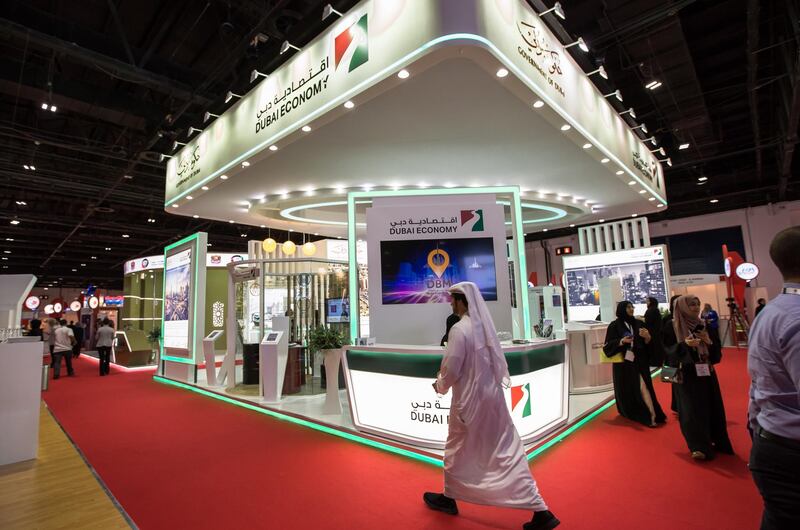The UAE economy is forecast to grow 3.9 per cent in 2018, boosted by efforts the government has made to diversify its sources of income, including a 5 per cent VAT, a senior official at the Ministry of Economy said on Tuesday.
“My expectation for UAE economic growth this year is 3.9 per cent,” Abdullah Al Saleh, the ministry’s undersecretary for foreign trade, said in Abu Dhabi on the sidelines of the UAE Economic Outlook Forum, co-organised by government body Dubai Economy and the Abu Dhabi Department of Economic Development.
The prediction, based on a forecast by the Central Bank of the UAE, comes in slightly higher than that of the IMF, which in October forecast 3.4 per cent growth for 2018, compared with an estimated 1.6 per cent in 2016. Emirates NBD, Dubai’s largest bank, predicts growth of 3.4 per cent this year.
The UAE economy grew 3 per cent in 2016. The Government is still calculating 2017 growth, Mr Al Saleh said.
“VAT will strengthen the UAE and keep [it on a path] of sustainable growth and is healthy for the government and the economy,” he said.
“The government will also be able to launch new projects that will boost the growth. So that is very healthy.”
The UAE economy has experienced slower economic growth in the wake of the oil crash of 2014, but has been turning the corner over the past year amid a rebound in the price of oil and higher non-oil economic growth.
__________
Read More:
[ The Government's VAT pledge gives a taste of our economic future ]
__________
Mr Al Saleh said that he expected the non-oil economy, which currently makes up more than 60 per cent of the country’s total GDP, to rise to 80 per cent by 2021 because of intensified efforts the Government is making to seek new forms of income. As well as VAT, the government has introduced a tax on fizzy drinks and cigarettes, and has reduced subsidies on fuel, water and electricity.
The UAE’s non-oil economy experienced its fastest uptick in business sentiment in nearly three years last month, according to Emirates NBD’s Purchasing Managers’ Index survey released last week.
Sentiment was boosted by steep growth in output and new business, spurred by the introduction of VAT at the start of the month.
The country’s non-oil economy, which has been subject to lower growth in recent years, is also expected to receive a boost this year from a pick-up in government spending ahead of Expo 2020.
Economists also say that an improvement in the global economy is aiding tourism, real estate and trade.
The global economy is forecast to have grown 3.5 per cent in 2017 and is expected to rise 3.7 per cent in 2018, the best rate since 2011, according to the OECD.
Speaking at the conference, Raed Safadi, chief economic adviser of Dubai Economy, said that Dubai is expecting 3.2 per cent real GDP growth in 2018 as a result of that growth in the non-oil economy.
The emirate’s economy is heavily reliant on trade and tourism, given its smaller oil reserves in comparison with Abu Dhabi.
However, the entire UAE will receive a shot in the arm from VAT, which became effective at the beginning of the year, and which will boost government coffers. The tax will net an estimated Dh12 billion in the first year and Dh20bn in the second year, according to government officials.
In a panel discussion on VAT the conference, Khalid Al Bustani, director general of the UAE Federal Tax Authority, defended the body against complaints that businesses have not been given enough time to time to implement the VAT.
Mr Bustani insisted the government had given businesses plenty of forewarning, and that even if the government delayed implementation there would be complaints about insufficient preparation time.





